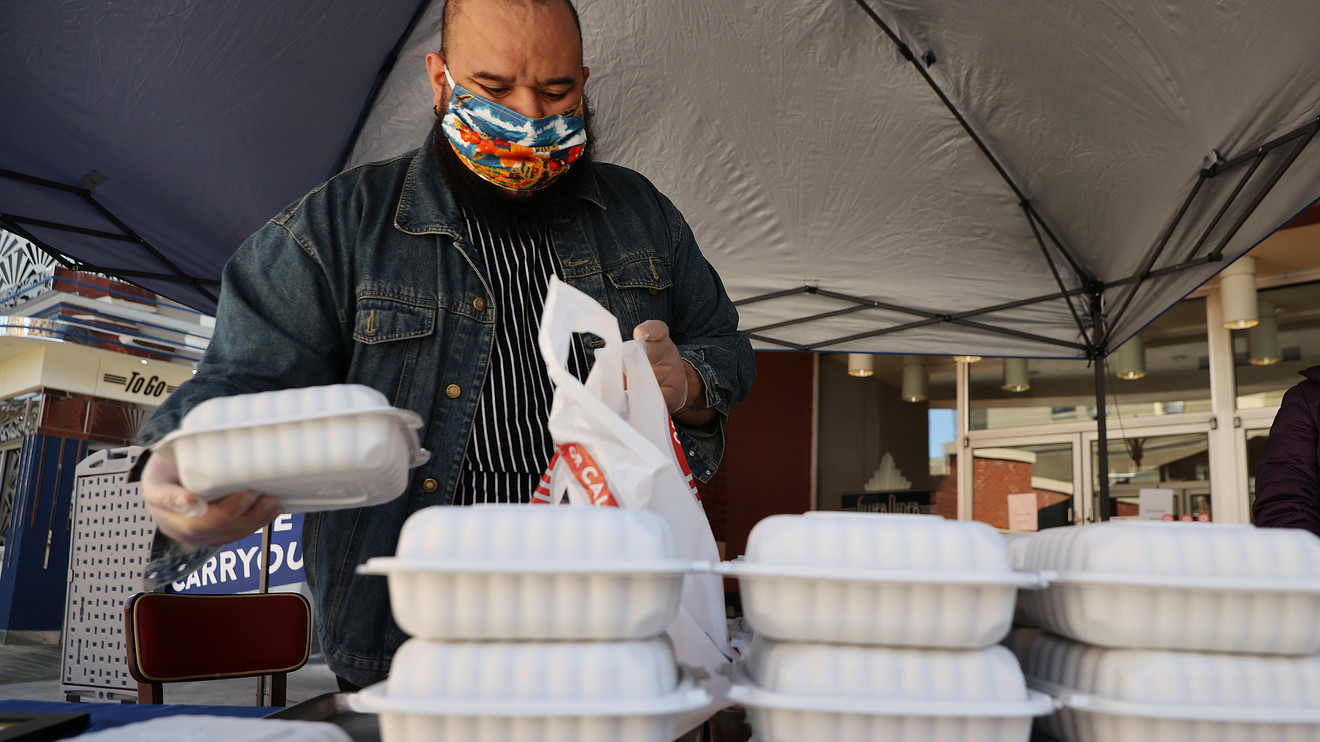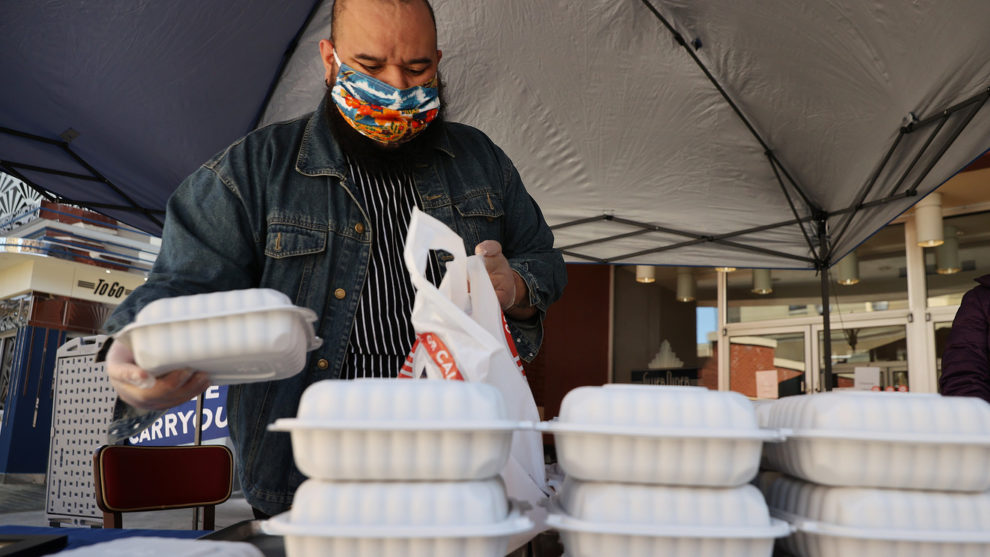
I walk or bike to work most days from my home in the center of San Francisco to the Twitch offices downtown. I usually stop at a coffee shop on the way and I shop for groceries on the way home. My favorite Sunday afternoon outing is walking in the Mission District, stopping at book stores, shopping for gear in the world’s only Pirate Supply Store, and having a meal at one of any number of amazing restaurants. Local businesses, especially restaurants, are a basic way I connect with my city. For me, there is nothing like a meal together to create bonds to my friends, family, and community.
When California responded to COVID-19 with a shelter-in-place order, I had many feelings but one clear insight: Most local businesses, especially restaurants and the jobs of the people who make them run, would not survive the lockdown unless we collectively did something. Their employees can’t work from home, most can’t continue to operate at all, and even many “essential” businesses would face greatly reduced buying. Laid-off employees would be devastated.
My most visceral fear was for those in my neighborhood, but it was obvious that it would impact people all over San Francisco, and even all over the United States and the world. Dealing with the virus directly is of course critical, and we need to be doing everything we can to stop the spread. But while that’s happening, our local economies are holding their breath, and we all know you can only hold your breath for so long.
My dad called me a few nights after the shelter-in-place order. Our conversation turned to the crisis at hand. We shared our dismay that, while small businesses we both love were shuttered as the local economy stalled, vulnerable people in our city would be going without necessities, even food. He suggested we could solve one problem with another: Pay restaurants to make food and deliver it to those in need.
It made sense to me. We could make every dollar do work three times over: First, restaurants could use the extra money to stay open for takeout and delivery. Second, we could help get food to people in distress as well as supporting wider food delivery; people would not need to go out to shop and would be safer from the disease. Third, we could provide infrastructure to help existing aid programs deploy their own money faster and more efficiently.
Read: Twitter CEO Jack Dorsey sets up $1 billion fund, with initial focus on COVID-19 relief
I was anxious to do something in this crisis, and this seemed to have leverage to produce real results. The idea for SF New Deal was planted. My first question was who should be the leader for the effort. Any project like this would live or die on whether we could find someone with the skills, knowledge, and drive to actually get it done.
I was ready to put up $1 million for initial funding but even more important was finding a person with the skills needed to put it into action. Fortunately, I knew Lenore Estrada. I’d see her grit and ability to get things done over the years. She knows small food businesses intimately, since she runs one. And she was connected to the community organizations and familiar with the city officials she’d need to pull it off. When I called her to propose getting it started, it turned out she’d already been thinking along similar lines and connecting to others similarly minded, meaning Lenore came with a remarkable team of people from many backgrounds, already looking for ways to achieve our goals.
Lenore and the SF New Deal team have moved with extraordinary speed to put this plan into action. Just 12 days after our first call, Lenore and her team had engaged important partner organizations including the S.F. African American Faith Based Coalition, UCSF, San Francisco’s Human Rights Commission, and many others. The project was off the ground and delivering thousands of meals a day. Its first week, SF New Deal put more than $250,000 into the hands of local businesses and their workers to deliver more than 16,000 meals to those in need. Working with these partners, we’ve engaged with over 100 restaurants to deliver meals, funded by both private and public sources. So many people and groups stepped up immediately to get SF New Deal from idea to results — it’s a remarkable testament to our ability to come together.
We started with restaurants because food was the most immediate need and because restaurants were among the hardest hit businesses. We have surveyed additional community partners and based on their assessment we expect the need in San Francisco through the end of the summer to exceed $20 million. We know that our local economies will take time to recover, but we cannot let our neighbors go hungry. Local businesses and organizations are ready to do the work to make food and to help organize delivery to those in need, but they need support from all of us. Join us in helping support them at http://www.sfnewdeal.org/.
“ Every city has this problem, and every city needs its own version of SF New Deal. ”
San Francisco is far from the only city needing this kind of help. Every city has this problem, and every city needs its own version of SF New Deal. We’re on a clock, too: every day of delay means more businesses shut down, and restarting them will be much harder than getting them help now. Every day of delay also means people having to choose between going hungry or going outside to get food and risking infection.
You can get a “New Deal” in your own city started right now. If you’re interested in being an initial backer, or if you want to lead one and need help finding resources, reach out to us at @sfnewdeal on Twitter or [email protected].
Emmett Shear is CEO of live-video platform Twitch.
Read: 1 in 3 Americans say their stimulus checks won’t sustain them for even a month
More: Why coronavirus could devastate charities even more than the Great Recession did











Add Comment